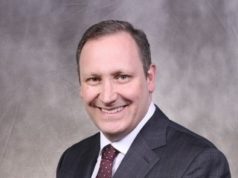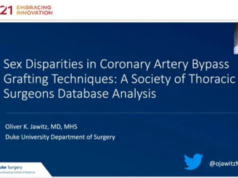
The risk of burnout among cardiothoracic surgeons has been heightened by the COVID-19 pandemic, according to the outgoing president of the Society of Thoracic Surgeons (STS) Joseph Dearani (Mayo Clinic, Rochester, USA), who cited this as an increasing area of concern within the specialty during his address to the society’s 57th annual meeting (29–31 January, virtual).
Speaking during the second day of the three-day virtual event, Dearani described 2020 as a gruelling year for healthcare professionals, highlighting the physical and emotional toll of the pandemic.
“COVID-19 has affected every facet of our personal and professional lives. And, while we all hope to return to some sort of normalcy, it is certain that medicine and society will experience immutable adjustments as the new normal settles in,” he commented.
He noted that physicians across the USA have experienced record changes in working hours, noting that for some, workloads have increased, while others have faced cancellation of elective and even some urgent procedures. “This is a tricky business in cardiothoracic surgery, since nothing is really elective, but rather shades of urgency,” he said. “I did have personal experience with two patients who were delayed and died during the postponement, and it still troubles me to this day.”
Rapidly changing work practices are among the contributors to possible burnout among some cardiothoracic surgeons, which Dearani said had already been identified as a problem within the field, even before the pandemic.
“Prior to the pandemic, the STS released a workforce study, showing that overall career satisfaction for cardiothoracic surgeons was favourable, with 54% being ‘very’ or ‘extremely’ satisfied, and overall average number of work hours per week had decreased compared to prior surveys. Unfortunately, 56% of cardiothoracic surgeons also had symptoms of burnout and depression.
“Suffice it to say, COVID has pushed many specialties to the edge, with increased awareness of this culture of overwork, stress and burnout, that has been a growing concern. The culmination of emotional exhaustion, depersonalisation with negative and callous responses to others, and diminished personal feelings of competence and accomplishment have affected many of us to some degree. It certainly has affected me.”
The burnout risk is not exclusive to surgeons, Dearani noted, adding that research suggests cardiothoracic residents and nursing staff are also expressing similar sentiments. He said: “Just as physicians face burnout issues, so too have our nursing colleagues who have endured overwhelming challenges this past year. In my opinion, nurses have been the rock solid, drumming heartbeat of the healthcare system, treating COVID patients with skill, compassion and dignity. The images of those responding to COVID have been a reminder that dedicated physicians and healthcare providers come in all genders, races and ethnic groups, and no one is immune to the stress that comes with the calling of caring for the sick.”
Aside from the risk of burnout, Dearani’s address also touched on the racial and socioeconomic disparities brought starkly into focus by the pandemic.
“Morbidity and mortality outcomes, for marginalised communities, particularly the African American and minority populations have also been underscored by the pandemic,” he commented. “In addition to heightened awareness of access issues, concomitant comorbidities such as obesity or heart disease disproportionately affect racial and ethnic minorities and have played a central role in the severity of COVID-19 in marginalised populations.
“Many causes include racial, ethnic, and socioeconomic factors. But, referral bias and insurance barriers also contribute to an inequity of reduced access for medical evaluation that has been amplified further due to the virtual environment transition, where marginalised communities have suffered, due to the frequent lack of computer technology for telehealth consultation.”










